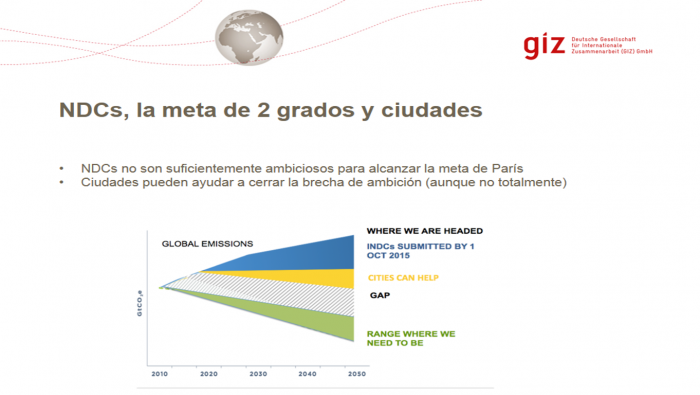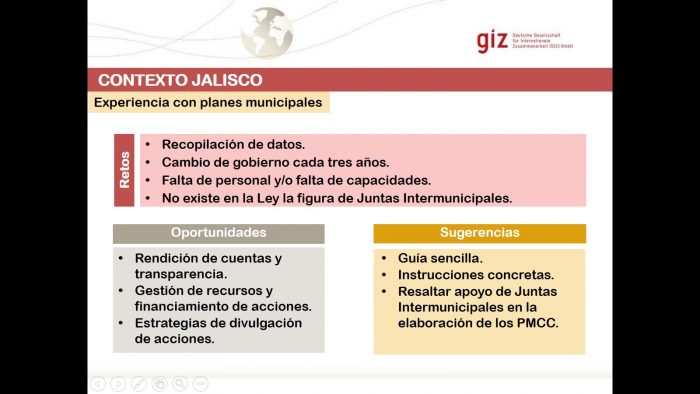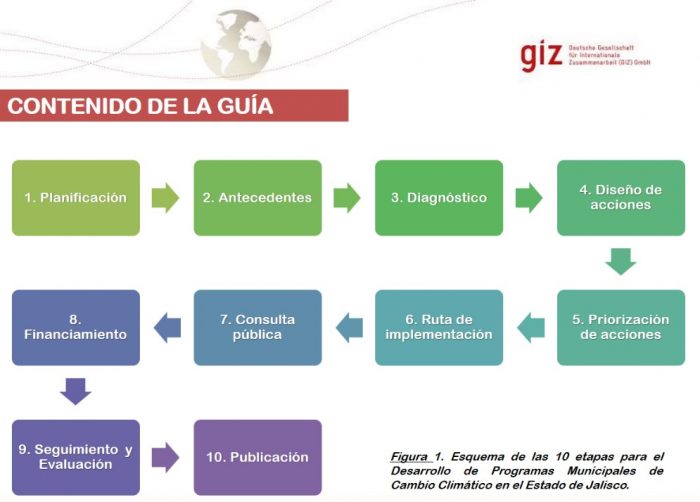To strengthen and promote coordination among subnational climate actions and national goals, the GIZ-implemented VICLIM project offered a webinar about experiences with municipal climate action plans in Mexico and local greenhouse gas emissions inventories in Costa Rica.
The webinar took place on the LEDS LAC platform on 21st of March 2018, with more than 150 participants from 28 countries following the presentations and engaging in a lively discussion.
“Today, cities already account for 70 % of global CO2 emissions, a figure that will continue to rise in the future due to the increasing urbanization” stresses Tangmar Marmon, Project Director of VICLIM. Therefore, local and regional governments, and in particular cities play a key role in developing and implementing solutions for tackling climate change, and in achieving national and international mitigation goals.

In this context, VICLIM aims to improve the involvement of subnational actors in the implementation of the National Determined Contributions (NDCs). The project strengthens the actors’ capacities for developing climate policies and actions and for establishing cooperation mechanisms with national authorities. It supports the exchange and scaling-up of good practices.
Emily Castro, Project Coordinator of VICLIM in Mexico, and Arturo Palero, Director of Transversal Management of Climate Change of the Ministry of Environment and Territorial Development in Jalisco (Semadet), highlighted that subnational governments have an essential role in achieving national climate goals, due to their responsibility for services such as water supply and treatment, public lighting, and waste management.
In this sense, the General Law on Climate Change establishes the obligation to develop Climate Change Plans for Mexican federative entities, but not for municipalities. However, there have been efforts that enable municipalities to engage in climate actions: for example, the PACMUN program of ICLEI and various states´ strategies aimed at promoting the development of local climate action agendas and creating funds, which are available to municipalities.

In Jalisco, the State Law on Climate Change requests from municipalities the development and implementation of climate change plans. From 2015 until today, two thirds of them have already advanced in implementing a plan and have carried out projects such as vulnerability assessments and other specific adaptation and mitigation actions.
In addition, Semadet, with the support of GIZ, prepares a guide to help municipalities to create and update the plans, to facilitate their alignment with international, federal and state instruments and to identify priority actions for each location. The guide contains tools for the development of greenhouse gas emissions inventories, establishes strategic lines for adaptation, mitigation and transversality, and advises on goals and objectives for long-term planning, sources of financing and income diversification.

In Costa Rica, GIZ supports the implementation of the Costa Rican NDC through the implementation of the Climate Action Project II together with the Ministry of Environment and Energy. The project works in four components: Climate governance; Monitoring, Reporting and Verification (MRV); Climate financing; and Facilitation of knowledge exchange at municipal and international level.
Six selected municipalities are part of this work. They are supported in the preparation of emission inventories and municipal action plans with the aim of systematizing the process and quantifying the contributions to the NDC. The key to this process is the participation of civil society to strengthen municipal actions.
For further details and the presentations (only available in Spanish), please click here
